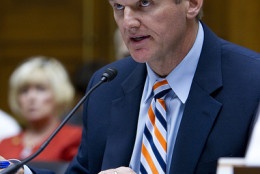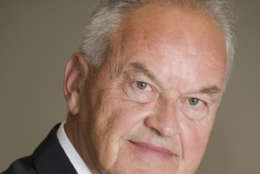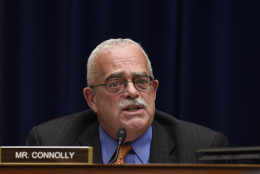NARFE
-
Senior Correspondent Mike Causey says the budget proposal could eliminate the so-called Social Security supplement now available to feds who are forced to retire earlier because of stressful, dangerous jobs.
May 25, 2017 -
Proposed changes to the federal retirement system could force current federal employees to delay retirements and spark financial hardship for current retirees. Federal financial experts discuss these proposals, which President Donald Trump included in his full fiscal 2018 budget request.
May 23, 2017 -
Senior Correspondent Mike Causey says federal and Social Security retirees may be in for a cost-of-living adjustment that’ll trump January's proposed 1.9 percent pay raise for federal workers.
May 23, 2017 -
One of the tough choices for people turning 65 can be both important and expensive, says Senior Correspondent Mike Causey, namely choosing to purchase Medicare Part B coverage or not.
May 09, 2017 -
Every time federal workers hear about a private company freezing its pension plan, they feel a distinct chill. Senior Correspondent Mike Causey wonders if feds are feeling a little cold these days.
May 01, 2017 -
The Federal Retirement Thrift Investment Board is losing its executive director of 10 years. Greg Long announced his resignation during the board's monthly meeting. In the interim, the agency's chief investment officer, Ravindra Deo, will serve as the acting executive director while the board conducts a national search for a new leader.
April 24, 2017 -
What do federal employees think about President Donald Trump's plans to reorganize the federal government? Find out this week on Your Turn when host Mike Causey talks with Federal News Radio Executive Editor Jason Miller and NARFE Legislative Director Jessica Klement. April 19, 2017
April 18, 2017 -
With the President's fiscal 2018 budget expected later this week, lawmakers and federal employee unions are gearing up for what could be a long and contentious fight over civilian agency spending and possible cuts to other federal employee programs. The National Active and Retired Federal Employees Association says the 2018 budget is its biggest challenge this year.
March 14, 2017 -
The CPI-E Act would require federal retirement programs to use the Consumer Price Index for the Elderly (CPI-E) when calculating cost-of-living adjustments. Currently the CPI used is the one for workers.
March 02, 2017 -
Senior Correspondent Mike Causey says low TSP fees may actually save federal workers money in the long run.
February 27, 2017 -
This year, NARFE and other groups believe they will face a hard fight protecting feds and retirees from changes in their health program.
January 31, 2017 -
John Hancock Life & Health Insurance Company, OPM's provider for the Federal Long Term Care Program, said "a confluence of factors" led to the sudden and drastic increases in premiums for 2017.
December 01, 2016 -
Open Season for the Federal Employee Health Benefit Program kicks off Nov. 14 and runs through Dec. 12. Participants have about month to make changes to their health plans. But experts say only 6 percent of federal employees and retirees typically choose to make a change.
November 14, 2016 -
Election Day can be a whirlwind of campaign signs, crowded polling sites and an avalanche of social media posts. To help cut through the chaos, here's Federal News Radio's roundup of congressional races, presidential platforms and Hatch Act reminders.
November 08, 2016 -
Roughly 540,000 of the 1.9 million calls the Office of Personnel Management's Retirement Services received from federal annuitants in fiscal 2015 were abandoned, OPM's inspector general found. The IG also said Retirement Services is not meeting its goal to process all written inquires within 60 days or less.
November 01, 2016















